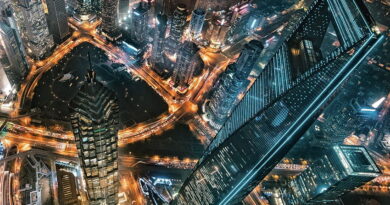The war of the Houthi rebels in the Red Sea and the risks for Italy
Another piece of that "piecemeal Third World War" repeatedly evoked by Pope Francis.
After the war in Ukraine and the conflict in Gaza between Israel and Hamas, as evidence of growing international disorder, tension is growing in the Red Sea following attacks on commercial ships carried out by Yemen's Shiite Houthi rebels.
The Houthis, who have been targeting Western cargo and oil tankers for weeks in retaliation against Israel, have warned that they will continue to strike "every 12 hours".
A particularly serious episode occurred last December 11, when a Norwegian tanker was repeatedly hit by a Houthi-led drone, near the Bab El-Mandeb Strait, after the vessel had already been hit by a cruise missile .
The Houthis took full responsibility for the attack.
They claimed that the tanker was headed for Israel, when in fact it was headed in the opposite direction, towards the Suez Canal, transiting to Italy.
As Stephen Bryen, defense expert and former undersecretary of the Reagan administration, explains, the straits and the Red Sea are international shipping lanes: therefore, the Houthi attacks violate the law of the sea and the attacks on merchant ships are real acts of war, as commonly understood.
According to the West, the Shiite rebels are operating on behalf of Iran in order to isolate Israel, which is engaged in the conflict in Gaza against Hamas.
The anti-Houthi coalition Following these attacks, on December 19 the Pentagon issued a joint statement signed by 44 nations, including the European Union and NATO countries.
“Numerous attacks emanating from Houthi-controlled territories in Yemen, including those on December 3 against three commercial vessels in the southern Red Sea linked to 14 nations, threaten international trade and maritime security,” it said.
“The seizure of the Galaxy Leader by the Houthis on November 19 and the detention of the 25 international crew members, who are still unjustly detained, are terrible.
This behavior also threatens the movement of food, fuel, humanitarian assistance and other essential goods to destinations and populations around the world.
We once again call on the Houthis to immediately release the crew and ship of the Galaxy Leader and to cease further attacks against commercial ships in the vital waterways of the region" reads the text signed, among others, also by the High Representative Josep Borrell at on behalf of the European Union and by Secretary General Jens Stoltenberg on behalf of NATO.
On the same day, US Defense Secretary Lloyd Austin announced the formation of a 10-nation task force – including Italy – to ensure the safety of commercial ships and maritime trade.
At the moment Washington has already deployed the destroyers USS Laboon, USS Masonl, USS Carney, which have been shooting down Houthi drones for weeks in order to guarantee the passage of merchant ships.
The forgotten civil war Public opinion – and above all, governments – have guiltyly forgotten that a bloody civil war had been underway in Yemen for 9 years in which, according to United Nations estimates, 377 thousand people died, of which 150 thousand directly linked to the armed conflict while the remainder – therefore more than 250 thousand people – died from hunger and diseases caused by the very serious humanitarian crisis caused by the war.
According to the World Food Programme, almost half of the country (14.5 million) out of 30 million inhabitants does not have enough food.
Almost half (47.5%) of children under five suffer from chronic malnutrition.
A conflict also fueled by the West and its weapons, which however has little interested the mainstream press from 2014 to today.
The civil war in Yemen in fact began in 2014, almost 10 years ago, when Shiite Houthi rebels linked to Iran took control of the capital, Sana'a, and much of the western territory of the country, demanding fuel prices lower and the resignation of the Sunni majority government supported by Riyadh.
Following the failure of negotiations, rebels took over the presidential palace in 2015, forcing President Abd Rabbu Mansour Hadi and his government to resign.
Starting in March 2015, a coalition of Gulf states led by Saudi Arabia launched a military campaign – mainly using the air force – against the Houthis.
According to the Council of Foreign Relations, Saudi Arabia and the United Arab Emirates have conducted a relentless air campaign, fielding over twenty-five thousand air strikes against the rebels.
These are attacks that caused over nineteen thousand civilian victims and from 2021 to 2022 to which the Houthis responded with a wave of drone attacks against Saudi Arabia and the United Arab Emirates.
Since 2014, the Houthis have gained considerable military experience and have been able to withstand a devastating aerial bombing campaign.
They are well armed and trained.
The United Nations attempted to mediate, with very little success.
A turning point seemed to have arrived last September.
As Giorgio Cafiero underlined on Responsible Statecraft, in fact, on 14 September, a Houthi delegation and a group of diplomats from Oman flew to Riyadh for talks on the resolution of the Yemeni conflict: these are the highest level official negotiations between the Houthis and Saudi Arabia on the soil of the Wahhabi Kingdom since the civil war began.
On September 20, Saudi officials said the visit had produced “positive results.” Indeed, for the first time, in Riyadh, the Houthi delegation met with Saudi Defense Minister Prince Khalid bin Salman, who referred to the visiting Houthi representatives as the "Sana'a delegation", and not as a faction rebel or, worse still, a terrorist group.
A change of narrative that seemed to signal a recognition by the Saudis of the fact that the Houthis have actually been at the head of a de facto government for 9 years, also consolidating their power in the western part of the country.
Despite this, however, the two sides were unable to reach a permanent truce.
Until the Hamas attack on October 7, which led the rebels to conduct piracy operations in the Red Sea in retaliation for Western support for Israel's military operation.
Doubts about Italy's participation Italy also fits into this context, a country that once had great weight and influence in Mediterranean dynamics but which, for a few decades, seems to have lost its compass and, above all, its weight specific.
In the next few hours our country will send the Virginio Fasan frigate to the Red Sea – the second of the FREMM class frigates (European Multi Mission Frigates) and the first in ASW (Anti Submarine Warfare) configuration – despite not directly participating in the Prosperity Guardian military operation launched by United States to protect merchant ships from daily attacks by Houthi rebels.
According to what was specified by the Italian Defense, "the ministry's decision to move one of its naval units to the Red Sea will take place as part of an already existing operation authorized by parliament, and not the Prosperity Guardian operation, as reported in the media" .
In fact, a passage through parliament is required to participate in the United States military operation.
“We risk finding ourselves with deserted ports,” warned Defense Minister Guido Crosetto after several companies suspended shipments to this hub of world trade, as reported by ANSA.
The Italian mission, however, remains ambiguous.
"Italy – added Crosetto – will do its part, together with the international community, to counter the terrorist destabilization activity of the Houthis, which we have already publicly condemned".
However, there remains a fundamental ambiguity regarding the presence of the Fasan in the Red Sea.
As geopolitical analyst Amedeo Maddaluno explains, there is no shortage of risks.
"They are direct and indirect.
Indirect, of ending up in the crosshairs of terrorist revenge.
Direct: the Houthis have a panoply of missiles with which they have already damaged Western military shipping.
The Fasan – explains the expert from the Globalization Observatory – will not go on a simple patrol and deterrence mission, but to a part of the world where there is shooting.
There is a lot of shooting and has been done for years.
This does not emerge from the media and public opinion."




